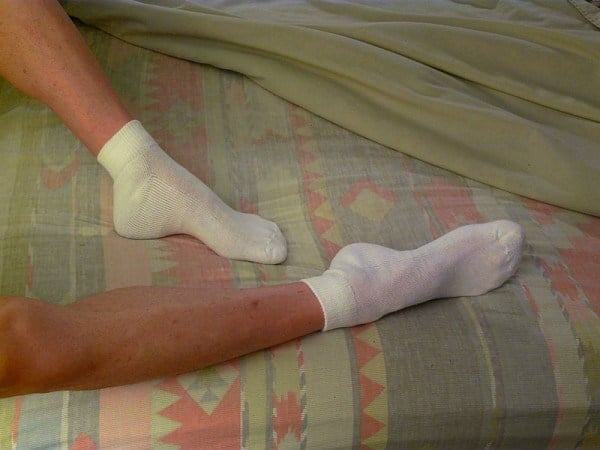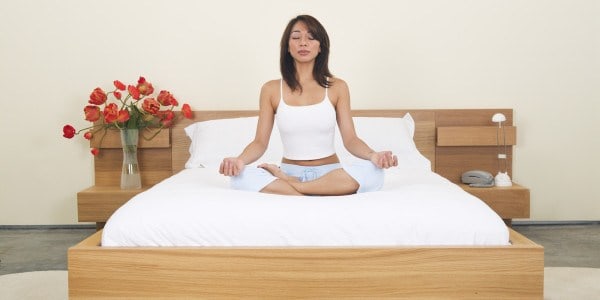Sleep. Whether you’re a struggling college student, a new mom, a corporate intern, or retired, you need and should be getting a full nights rest. But what if you spend half that time struggling to fall asleep, then end up groggy and tired? Fear not, for there may be a solution.
#1. Get a ritual going.

*Chanting noises*
Okay, not that kind of ritual. But building a pre-bedtime routine may help calm you down and get your brain ready for some sleepy-sleepy time. Do whatever works; put on a nice calm soundtrack, take a hot bath, slip into some comfortable clothing, sip a cup of tea — and collapse onto your sheets in an unflattering manner, if that’s your thing.
#2. Get to bed at roughly the same time each night.

Besides a routine, staying consistent with your actual bedtime is key to sleeping, too. Our bodies are natural creatures of habit — sticking to a sleeping schedule will help you get a full night’s rest each time.
#3. Watch your intake.

This goes for everything, from sleeping to eating. Large meals and gallons of water aren’t favorable before bed, simply because they’ll keep your metabolism working all night. Don’t eat too soon before bedtime, either, as going to bed hungry will only disrupt your sleep.
#4. Nap before lunch.

Naps are good if you’re feeling drowsy and have had a bad night, but too many naps, or naps late in the afternoon might mean you’ll be too awake to sleep when the time comes. Limit your naps to 20 minutes at a time to get the biggest energy boost.
#5. Get your workout going.

Lifting gives you more than great glutes and impressive quads — regular exercise helps you keep your sleeping rhythm going, too. It doesn’t have to be CrossFit or marathon training — going for a run early in the morning, or sometime in the afternoon works too. Don’t wait too long, though, as late workouts will disrupt your sleep.
#6. Keep it cool, man.

A room temperature between 60° (15°C) and 67° (19°C) may work best for sleeping. Too cold, and you’ll likely shiver your timbers. Too hot, and falling asleep will be hindered by the fact that you’ll end up being a sweaty mess.
#7. And keep it warm, too.

While your room should be cool, keeping your hands or feet warm may help you. Some people hate it, but sleeping with your socks on might actually help get your sleep on. It’s a person-to-person sort of thing, though.
#8. Turn your lights off. Everywhere.

Keep your TV, laptop, computer, phones, lights and even the little LED on your PS4 off, for optimal sleep. Bright lights — especially from screens — will block the adenosine in your brain, kind of like coffee does. Opt for music or an audio book instead of TV or reading before bed.
#9. Meditate, or something.

Stress is a huge problem for insomniacs. In nature, stress hormones would keep you awake and your nerves primed for fight or flight. However, laying in bed worrying about your mortgage isn’t exactly what nature had in mind. Instead, do something to calm yourself and empty your mind.
#10. Use your bed sparingly.

Our brain likes to make associations and patterns, to help with quick decision-making and save us the trouble of thinking really hard. Part of that means you can program your brain to think “sleep” when it sees your bed. To do that, however, you need to limit the time you spend on your bed not sleeping. Sex is still fine though.
#11. Check your mattress.

A dirty or old mattress might lead to a number of night-time disturbances, from itchiness and allergies to bed bugs. Seal your mattress, or get yourself a new one to solve the issue, and enjoy a better night’s sleep.
#12. Chamomile over red wine.

Alcohol does help you fall asleep — but it’ll also wake you up late at night. Instead of a nice Chardonnay or Merlot before bed, go with a cup of chamomile or some warm milk. Chamomile will calm your nerves, helping you sleep, and the caseomorphins in warm milk may sedate you as well.
#13. Color matters.

Our brain responds differently to some colors than it does to others — red, for example, seems to call for physical reaction and excitement, while blue calls for calmness and intellectual efficiency and yellow calls for creativity. Whatever color you decide to choose for your bedroom, keep it matte so it doesn’t stimulate your eyes too much.
#14. Get a word in with your doc.

If any of the above doesn’t help you, and you haven’t gotten a good night’s sleep in two to three weeks no matter how much you try to, it may be high time to call it in with your doctor. You may be suffering from more than just a bout of sleeplessness.

